Neurosis Quotes
Quotes tagged as "neurosis"
Showing 1-30 of 79

“If neurotic is wanting two mutually exclusive things at one and the same time, then I'm neurotic as hell. I'll be flying back and forth between one mutually exclusive thing and another for the rest of my days.”
― The Bell Jar
― The Bell Jar

“One of the symptoms of an approaching nervous breakdown is the belief that one’s work is terribly important.”
― The Conquest of Happiness
― The Conquest of Happiness
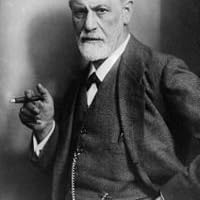
“Religion is an attempt to get control over the sensory world, in which we are placed, by means of the wish-world, which we have developed inside us as a result of biological and psychological necessities. But it cannot achieve its end. Its doctrines carry with them the stamp of the times in which they originated, the ignorant childhood days of the human race. Its consolations deserve no trust. Experience teaches us that the world is not a nursery. The ethical commands, to which religion seeks to lend its weight, require some other foundations instead, for human society cannot do without them, and it is dangerous to link up obedience to them with religious belief. If one attempts to assign to religion its place in man’s evolution, it seems not so much to be a lasting acquisition, as a parallel to the neurosis which the civilized individual must pass through on his way from childhood to maturity.”
― Moses and Monotheism
― Moses and Monotheism

“In so doing, the idea forces itself upon him that religion is comparable to a childhood neurosis, and he is optimistic enough to suppose that mankind will surmount this neurotic phase, just as so many children grow out of their similar neurosis.”
― The Future of an Illusion
― The Future of an Illusion

“Neurotics complain of their illness, but they make the most of it, and when it comes to taking it away from them they will defend it like a lioness her young.”
―
―
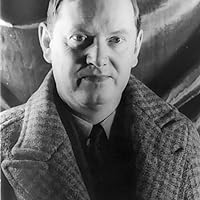
“...for in that city [New York] there is neurosis in the air which the inhabitants mistake for energy.”
― Brideshead Revisited
― Brideshead Revisited
“A psychologist said to me, there are only two important questions you have to ask yourself. What do you really feel? And, what do you really want? If you can answer those two, you probably can leave your neuroses behind you.”
―
―
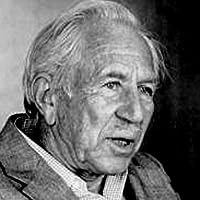
“The cases described in this section (The Fear of Being) may seem extreme, but I have become convinced that they are not as uncommon as one would think. Beneath the seemingly rational exterior of our lives is a fear of insanity. We dare not question the values by which we live or rebel against the roles we play for fear of putting our sanity into doubt. We are like the inmates of a mental institution who must accept its inhumanity and insensitivity as caring and knowledgeableness if they hope to be regarded as sane enough to leave. The question who is sane and who is crazy was the theme of the novel One Flew Over The Cuckoo's Nest. The question, what is sanity? was clearly asked in the play Equus.
The idea that much of what we do is insane and that if we want to be sane, we must let ourselves go crazy has been strongly advanced by R.D. Laing. In the preface to the Pelican edition of his book The Divided Self, Laing writes: "In the context of our present pervasive madness that we call normality, sanity, freedom, all of our frames of reference are ambiguous and equivocal." And in the same preface: "Thus I would wish to emphasize that our 'normal' 'adjusted' state is too often the abdication of ecstasy, the betrayal of our true potentialities; that many of us are only too successful in acquiring a false self to adapt to false realities."
Wilhelm Reich had a somewhat similar view of present-day human behavior. Thus Reich says, "Homo normalis blocks off entirely the perception of basic orgonotic functioning by means of rigid armoring; in the schizophrenic, on the other hand, the armoring practically breaks down and thus the biosystem is flooded with deep experiences from the biophysical core with which it cannot cope." The "deep experiences" to which Reich refers are the pleasurable streaming sensations associated with intense excitation that is mainly sexual in nature. The schizophrenic cannot cope with these sensations because his body is too contracted to tolerate the charge. Unable to "block" the excitation or reduce it as a neurotic can, and unable to "stand" the charge, the schizophrenic is literally "driven crazy."
But the neurotic does not escape so easily either. He avoids insanity by blocking the excitation, that is, by reducing it to a point where there is no danger of explosion, or bursting. In effect the neurotic undergoes a psychological castration. However, the potential for explosive release is still present in his body, although it is rigidly guarded as if it were a bomb. The neurotic is on guard against himself, terrified to let go of his defenses and allow his feelings free expression. Having become, as Reich calls him, "homo normalis," having bartered his freedom and ecstasy for the security of being "well adjusted," he sees the alternative as "crazy." And in a sense he is right. Without going "crazy," without becoming "mad," so mad that he could kill, it is impossible to give up the defenses that protect him in the same way that a mental institution protects its inmates from self-destruction and the destruction of others.”
― Fear Of Life
The idea that much of what we do is insane and that if we want to be sane, we must let ourselves go crazy has been strongly advanced by R.D. Laing. In the preface to the Pelican edition of his book The Divided Self, Laing writes: "In the context of our present pervasive madness that we call normality, sanity, freedom, all of our frames of reference are ambiguous and equivocal." And in the same preface: "Thus I would wish to emphasize that our 'normal' 'adjusted' state is too often the abdication of ecstasy, the betrayal of our true potentialities; that many of us are only too successful in acquiring a false self to adapt to false realities."
Wilhelm Reich had a somewhat similar view of present-day human behavior. Thus Reich says, "Homo normalis blocks off entirely the perception of basic orgonotic functioning by means of rigid armoring; in the schizophrenic, on the other hand, the armoring practically breaks down and thus the biosystem is flooded with deep experiences from the biophysical core with which it cannot cope." The "deep experiences" to which Reich refers are the pleasurable streaming sensations associated with intense excitation that is mainly sexual in nature. The schizophrenic cannot cope with these sensations because his body is too contracted to tolerate the charge. Unable to "block" the excitation or reduce it as a neurotic can, and unable to "stand" the charge, the schizophrenic is literally "driven crazy."
But the neurotic does not escape so easily either. He avoids insanity by blocking the excitation, that is, by reducing it to a point where there is no danger of explosion, or bursting. In effect the neurotic undergoes a psychological castration. However, the potential for explosive release is still present in his body, although it is rigidly guarded as if it were a bomb. The neurotic is on guard against himself, terrified to let go of his defenses and allow his feelings free expression. Having become, as Reich calls him, "homo normalis," having bartered his freedom and ecstasy for the security of being "well adjusted," he sees the alternative as "crazy." And in a sense he is right. Without going "crazy," without becoming "mad," so mad that he could kill, it is impossible to give up the defenses that protect him in the same way that a mental institution protects its inmates from self-destruction and the destruction of others.”
― Fear Of Life

“While writing is like a joyful release, editing is a prison where the bars are my former intentions and the abusive warden my own neuroticism.”
―
―

“A transference neurosis corresponds to a conflict between ego and id, a narcissistic neurosis corresponds to that between between ego and super-ego, and a psychosis to that between ego and outer world.”
― General Psychological Theory: Papers on Metapsychology
― General Psychological Theory: Papers on Metapsychology

“It was Freud's ambition to discover the cause of hysteria, the archetypal female neurosis of his time. In his early investigations, he gained the trust and confidence of many women, who revealed their troubles to him.Time after time, Freud's patients, women from prosperous, conventional families, unburdened painful memories of childhood sexual encounters with men they had trusted: family friends, relatives, and fathers. Freud initially believed his patients and recognized the significance of their confessions. In 1896, with the publication of two works, The Aetiology of Hysteria and Studies on Hysteria, he announced that he had solved the mystery of the female neurosis. At the origin of every case of hysteria, Freud asserted, was a childhood sexual trauma.
But Freud was never comfortable with this discovery, because of what it implied about the behavior of respectable family men. If his patients' reports were true, incest was not a rare abuse, confined to the poor and the mentally defective, but was endemic to the patriarchal family. Recognizing the implicit challenge to patriarchal values, Freud refused to identify fathers publicly as sexual aggressors. Though in his private correspondence he cited "seduction by the father" as the "essential point" in hysteria, he was never able to bring himself to make this statement in public. Scrupulously honest and courageous in other respects, Freud falsified his incest cases. In The Aetiology of Hysteria, Freud implausibly identified governessss, nurses, maids, and children of both sexes as the offenders. In Studies in Hysteria, he managed to name an uncle as the seducer in two cases. Many years later, Freud acknowledged that the "uncles" who had molested Rosaslia and Katharina were in fact their fathers. Though he had shown little reluctance to shock prudish sensibilities in other matters, Freud claimed that "discretion" had led him to suppress this essential information.
Even though Freud had gone to such lengths to avoid publicly inculpating fathers, he remained so distressed by his seduction theory that within a year he repudiated it entirely. He concluded that his patients' numerous reports of sexual abuse were untrue. This conclusion was based not on any new evidence from patients, but rather on Freud's own growing unwillingness to believe that licentious behavior on the part of fathers could be so widespread. His correspondence of the period revealed that he was particularly troubled by awareness of his own incestuous wishes toward his daughter, and by suspicions of his father, who had died recently.
p9-10”
― Father-Daughter Incest
But Freud was never comfortable with this discovery, because of what it implied about the behavior of respectable family men. If his patients' reports were true, incest was not a rare abuse, confined to the poor and the mentally defective, but was endemic to the patriarchal family. Recognizing the implicit challenge to patriarchal values, Freud refused to identify fathers publicly as sexual aggressors. Though in his private correspondence he cited "seduction by the father" as the "essential point" in hysteria, he was never able to bring himself to make this statement in public. Scrupulously honest and courageous in other respects, Freud falsified his incest cases. In The Aetiology of Hysteria, Freud implausibly identified governessss, nurses, maids, and children of both sexes as the offenders. In Studies in Hysteria, he managed to name an uncle as the seducer in two cases. Many years later, Freud acknowledged that the "uncles" who had molested Rosaslia and Katharina were in fact their fathers. Though he had shown little reluctance to shock prudish sensibilities in other matters, Freud claimed that "discretion" had led him to suppress this essential information.
Even though Freud had gone to such lengths to avoid publicly inculpating fathers, he remained so distressed by his seduction theory that within a year he repudiated it entirely. He concluded that his patients' numerous reports of sexual abuse were untrue. This conclusion was based not on any new evidence from patients, but rather on Freud's own growing unwillingness to believe that licentious behavior on the part of fathers could be so widespread. His correspondence of the period revealed that he was particularly troubled by awareness of his own incestuous wishes toward his daughter, and by suspicions of his father, who had died recently.
p9-10”
― Father-Daughter Incest

“Neurosis is the result of a conflict between the ego and its id, whereas psychosis is the analogous outcome of a similar disturbance in the relation between the ego and its environment (outer world).”
― General Psychological Theory: Papers on Metapsychology
― General Psychological Theory: Papers on Metapsychology

“But in neurotic anxiety, two conditions are necessary: (1) the threat must be to a vital value; and (2) the threat must be present in juxtaposition with another threat so that the individual cannot avoid one threat without being confronted by another. In patterns of neurotic anxiety, the values held essential to the individual's existence as a personality are in contradiction with each other.”
― The Meaning of Anxiety
― The Meaning of Anxiety
“Just this past summer, I took online courses in introductory logic and law through civilization. Often the weight of history, with its facts heaped upon facts requiring complex chains of inference to sort through – I mean complex for someone with the soft brain of a tomato merchant; for me the premises are obvious and the conclusions dire and inescapable – threatened to crush me, and I was ultimately forced to abandon the whole undertaking. By way of recovery, I spent the rest of the summer immersed in a Freudian meditation on some choice tabloids. The mysterious lives of celebrities make for challenging induction. The reasoning process involves navigating many gaps in our knowledge of them. What is certain is that under the iceberg of glitz and glamor lie neurotic, depraved individuals with bizarre habits and hobbies, people who think they’re above the law.”
― A Story that Talks About Talking is Like Chatter to Chattering Teeth, and Every Set of Dentures can Attest to the Fact that No . . .
― A Story that Talks About Talking is Like Chatter to Chattering Teeth, and Every Set of Dentures can Attest to the Fact that No . . .

“Our “increasing mental sickness” may find expression in neurotic symptoms. These symptoms are conspicuous and extremely distressing. But “let us beware,” says Dr. Fromm, “of defining mental hygiene as the prevention of symptoms. Symptoms as such are not our enemy, but our friend; where there are symptoms there is conflict, and conflict always indicates that the forces of life which strive for integration and happiness are still fighting.” The really hopeless victims of mental illness are to be found among those who appear to be most normal. “Many of them are normal because they are so well adjusted to our mode of existence, because their human voice has been silenced so early in their lives, that they do not even struggle or suffer or develop symptoms as the neurotic does.” They are normal not in what may be called the absolute sense of the word; they are normal only in relation to a profoundly abnormal society. Their perfect adjustment to that abnormal society is a measure of their mental sickness. These millions of abnormally normal people, living without fuss in a society to which, if they were fully human beings, they ought not to be adjusted, still cherish “the illusion of individuality,” but in fact they have been to a great extent deindividualized. Their conformity is developing into something like uniformity. But “uniformity and freedom are incompatible. Uniformity and mental health are incompatible too. . . . Man is not made to be an automaton, and if he becomes one, the basis for mental health is destroyed.”
― Brave New World / Brave New World Revisited
― Brave New World / Brave New World Revisited

“We can postulate that there must be diseases founded on a conflict between ego and super-ego. Analysis gives us the right to infer that melancholia is the model of this group, and then we should put in a claim for the name of "narcissistic psychoneuroses" for these disorders.”
― General Psychological Theory: Papers on Metapsychology
― General Psychological Theory: Papers on Metapsychology
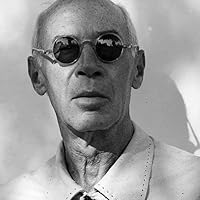
“[...]as Sylvester says, a man who has never been afflicted with a neurosis does not know the meaning of suffering.”
― Tropic of Cancer
― Tropic of Cancer

“I'm flummoxed by this unraveling of time, I'm losing my grip on myself. I know that nothing awful will happen on the other side of the door. If anything, I'm about to have a perfectly forgettable day: a class to teach, a meeting with colleagues, maybe a movie. But I'm afraid of forgetting something crucial—my cell phone or my identity card, my health insurance or my keys. And I'm afraid of running into trouble.”
― Whereabouts
― Whereabouts

“Why is female vulnerability still only acceptable when it's neuroticised and personal; when it feeds back on itself? Why do people still not get it when we handle vulnerability like philosophy, at some remove?”
― I Love Dick
― I Love Dick

“All who seek to be nobler than their constitution permits succumb to neurosis; they would have been better in health if they had found it possible to be morally worse.”
― Civilization and Its Discontents
― Civilization and Its Discontents

“If we survey the relation of survivors to the dead through the course of the ages, it is very evident that the ambivalent feeling has extraordinarily abated. We now find it easy to suppress whatever unconscious hostility towards the dead there may still exist without any special psychic effort on our part. Where formerly satisfied hate and painful tenderness struggled with each other, we now find piety, which appears like a cicatrice and demands : De mortuis nil nisi bene.Only neurotics still blur the mourning for the loss of their dear ones with attacks of compulsive reproaches which psychoanalysis reveals as the old ambivalent emotional feeling. How this change was brought about, and to what extent constitutional changes and real improvement of familiar relations share in causing the abatement of the ambivalent feeling, need not be discussed here.
But this example would lead us to assume that the psychic impulses of primitive man possessed a higher degree of ambivalence than is found at present among civilized human beings. Withthe decline of this ambivalence the taboo, as the compromise symptom of the ambivalent conflict, also slowly disappeared. Neurotics who are compelled to reproduce this conflict, together with the taboo resulting from it, may be said to have brought with them an atavistic remnant in the form of an archaic constitution the compensation of which in the interest of cultural demands entails the most prodigious psychic efforts on their part.”
― Totem and Taboo
But this example would lead us to assume that the psychic impulses of primitive man possessed a higher degree of ambivalence than is found at present among civilized human beings. Withthe decline of this ambivalence the taboo, as the compromise symptom of the ambivalent conflict, also slowly disappeared. Neurotics who are compelled to reproduce this conflict, together with the taboo resulting from it, may be said to have brought with them an atavistic remnant in the form of an archaic constitution the compensation of which in the interest of cultural demands entails the most prodigious psychic efforts on their part.”
― Totem and Taboo

“Cancer: the code breaks down, becomes disorganized, lets cells proliferate indiscriminately. A disease of information. AIDS: the immune system (the secret defences of the body) is suppressed. Obsessive fear of contiguity, of flows (sperm, blood, saliva), of contact. A disease of communication. What if all this reflected a brute, instinctive refusal of the flows of communic ation, of sperm, of sex, of words? If there were in all this an 'instinctive', vital resistance to the extension of flows and circuits - at the cost of a new mortal pathology, AIDS and cancer, which would ultimately be protecting us from something even more serious, or would at least be serving as an alarm signal? After all, neurosis is what man invents to protect him from madness.”
― Cool Memories
― Cool Memories

“Over the years I discovered that virtually everyone who comes to analysis is in some way facing a religious crisis, a term I prefer to neurosis, and every analysis is in some way a religious dilemma.”
― Balancing Heaven and Earth: A Memoir of Visions, Dreams, and Realizations
― Balancing Heaven and Earth: A Memoir of Visions, Dreams, and Realizations
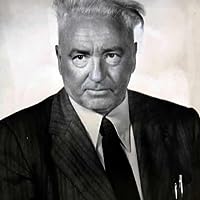
“..мы имеем дело с шабашем ведьм, который будет повторяться вновь и вновь до тех пор, пока носителям знания и труда не удастся уничтожить в себе и в окружающем мире массовый невроз, называющийся "высокой политикой" и живущий за счёт беспомощности, коренящейся в характере людей”
― The Function of the Orgasm
― The Function of the Orgasm
“It is not the psychologists but the literary writers who are ahead of their time.”
― For Your Own Good: Hidden Cruelty in Child-Rearing and the Roots of Violence
― For Your Own Good: Hidden Cruelty in Child-Rearing and the Roots of Violence
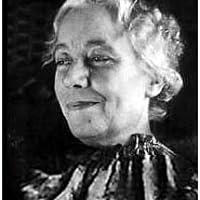
“Under favorable conditions, man's energies are put into the realization of his potential...Under inner stress, however, a person may become alienated from his real self. He will then shift the major part of his energies to the task of molding himself, by a rigid system of inner dictates, into a being of absolute perfection.”
― Neurosis and Human Growth: The Struggle Towards Self-Realization
― Neurosis and Human Growth: The Struggle Towards Self-Realization
“Jobs promote neurotics because jobs are means-over-ends prospects. The goal does not matter; doing the methods that your boss demands matters, and you get promoted by flattering others and doing what they want, not what they need. Jobs enshrine neurosis in obedience and conformity.
amerika dot org”
―
amerika dot org”
―
All Quotes
|
My Quotes
|
Add A Quote
Browse By Tag
- Love Quotes 97.5k
- Life Quotes 76k
- Inspirational Quotes 73k
- Humor Quotes 43.5k
- Philosophy Quotes 29.5k
- Inspirational Quotes Quotes 27k
- God Quotes 26k
- Truth Quotes 23.5k
- Wisdom Quotes 23.5k
- Romance Quotes 23k
- Poetry Quotes 22k
- Death Quotes 20k
- Happiness Quotes 18.5k
- Life Lessons Quotes 18.5k
- Hope Quotes 18k
- Faith Quotes 18k
- Quotes Quotes 16.5k
- Inspiration Quotes 16.5k
- Spirituality Quotes 15k
- Religion Quotes 15k
- Motivational Quotes 15k
- Writing Quotes 15k
- Relationships Quotes 14.5k
- Life Quotes Quotes 14k
- Love Quotes Quotes 14k
- Success Quotes 13.5k
- Time Quotes 12.5k
- Motivation Quotes 12k
- Science Quotes 11.5k
- Motivational Quotes Quotes 11.5k




